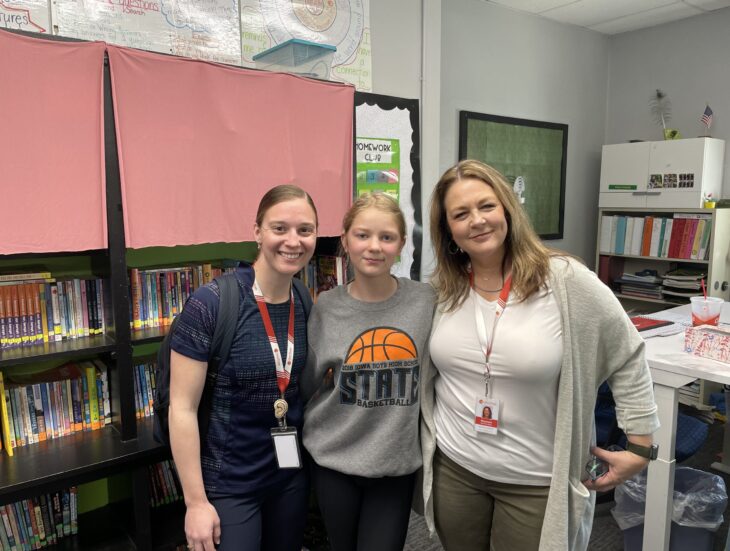Audiologists work with the deaf/hard of hearing population ages birth through 21 years, their families, and teams serving these students. Audiologists gather hearing information and data about a child’s/student’s access to verbal instruction. They help determine accommodations, modifications, and hearing assistive technology that may be needed to make the home or school accessible and coach the adults working with the students on implementing these supports. Audiologists also advocate for students/children with hearing loss and help teach them to advocate for themselves. They are also responsible for the hearing screening programs within local school districts.
The agency also has audiometrists on staff who help provide hearing screenings to children under the supervision of a licensed audiologist.
Additionally, Teachers of the Deaf and/or Hard of Hearing (TDHHs) instruct and support students who are deaf or hard of hearing between the ages of birth to 21 years old in their chosen mode of communication. TDHHs provide in-service, training and/or consultation to teams and families. They assist in determining appropriate modifications and accommodations to make the home or school accessible to the student. TDHHs also provide insights into assessments and interventions based on their knowledge of how hearing loss impacts development and learning. TDHHs assess the full range of communication and language levels and assess the needs within the Expanded Core Curriculum for Deaf and Hard of Hearing.
Article: Revealing the Dedication of Great Prairie AEA's Hearing Team During Deaf Awareness Month
Services
Early identification of hearing loss through:
- Follow-up of newborn hearing screening
- Early Access referrals
- Child find activities
- Head Start and preschool screenings
- School-age screening programs
- Parent, school, and other referrals
Evaluation of hearing loss, amplification, and educational needs:
- Diagnostic hearing tests and ongoing re-evaluation
- Medical referrals
- Evaluate the need for hearing aids
- Evaluate the need for FM systems
- Verification of appropriate amplification settings
- Maintenance of amplification
- Teacher in-services regarding classroom accommodations
- Family and student counseling and support
Educational Services
- Assessment of communication, academic, and psychosocial needs
- Direct/consultative services to students
- Development and maintenance of individual education plans and individual family service plans
- Education of and support to parents, students, teachers, and other professionals
- Support and collaboration with educational sign language interpreters/associates
Resources
- Hearing Screening Request Form
- Let Them Hear Foundation
- National Institute on Deafness and Other Communication Disorders
- The American Speech-Language-Hearing Association
- The Educational Audiology Association
- Boys Town National Research Hospital
- National Association of the Deaf
- The American Academy of Audiology

